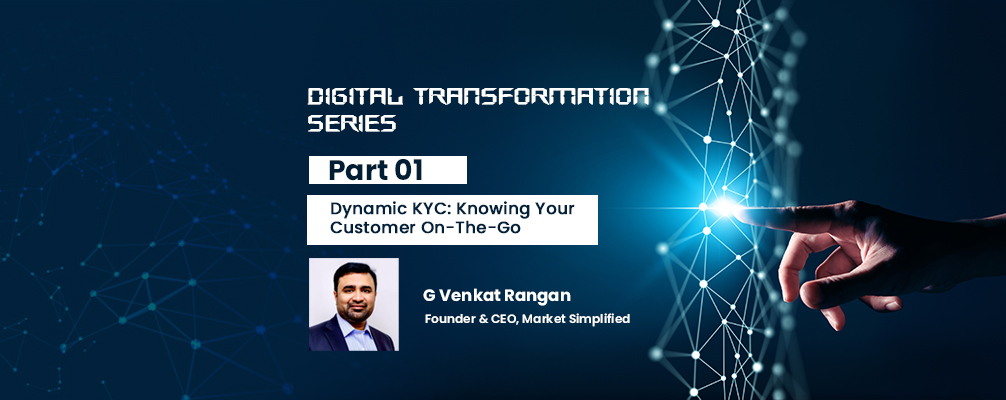
A comprehensive Know Your Customer (KYC) framework forms the basis for targeting customers better and in the context of financial institutions, it becomes very critical for Risk Management and in tackling financial crimes as well. Banks and Financial Institutions, through various social media and online touchpoints, collect heaps of customer information, such as their current location, employment, or business and even their spending habits. Yet, very few banks are able to make the best use of this data. More often, departments work in silos and find it difficult to make a proper interpretation of these huge volumes of data that are available to them.
Capturing all the customer details at the time of initial onboarding may be a difficult task, especially the behaviour related information. Adding to this is the constant struggle to comply with ever-changing complex regulations, something that financial institutions can relate to. Just like how a shoe of one size doesn’t fit all, each customer is unique in terms of their interaction with the bank, financial behaviour, risk appetite, and spending patterns.
With so many complications co-existing, will a basic KYC at the time of onboarding suffice in making smart decisions for financial institutions?
Automated, intelligent, and AI-based solutions have the ability to create new opportunities that can significantly streamline and improve KYC monitoring and compliance. With the growing impact of AI and ML, regulators are likely to challenge the traditional KYC methods and may demand a dynamic KYC. Daily screening, continuous monitoring, and enhancements in transaction monitoring would imply that firms could execute “continuous KYC” based on a series of triggered events, rather than a scheduled or static approach based on customer risk rating.
Precise data capture and improved quality of data will augur faster and more accurate risk management. Firms are grouping and consolidating research through the available advanced artificial intelligence (AI), and meticulously reducing false positives with smart segmentation. By doing so, they are able to create more robust risk profiles and unearth customers’ true profiles. The approach holds good for both individuals and institutional clients. Information related to promoters and directors of the institutions are also constantly monitored while making decisions. It is no longer about what is on the paper. It is more about an individual’s behaviour and action, and how it is in turn affecting his financial decisions, all this captured and analyzed to make dynamic KYC possible.
Moving to a dynamic KYC process has to start with removing the inhibitors. Paper-based processes, poor quality data collection methods, or inconsistent KYC standards have to be fixed before attempting to build a flexible and robust process at an enterprise level. The key is to centralize and streamline customer data so that proper cleansing and intelligent processing can be performed on the data to mine valuable information that will eventually help to provide a much better quality of service for both individual and institutional clients.




;)

